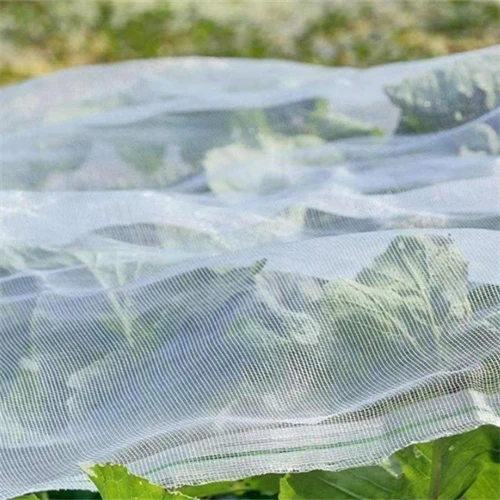-
 Afrikaans
Afrikaans -
 Albanian
Albanian -
 Amharic
Amharic -
 Arabic
Arabic -
 Armenian
Armenian -
 Azerbaijani
Azerbaijani -
 Basque
Basque -
 Belarusian
Belarusian -
 Bengali
Bengali -
 Bosnian
Bosnian -
 Bulgarian
Bulgarian -
 Catalan
Catalan -
 Cebuano
Cebuano -
 China
China -
 Corsican
Corsican -
 Croatian
Croatian -
 Czech
Czech -
 Danish
Danish -
 Dutch
Dutch -
 English
English -
 Esperanto
Esperanto -
 Estonian
Estonian -
 Finnish
Finnish -
 French
French -
 Frisian
Frisian -
 Galician
Galician -
 Georgian
Georgian -
 German
German -
 Greek
Greek -
 Gujarati
Gujarati -
 Haitian Creole
Haitian Creole -
 hausa
hausa -
 hawaiian
hawaiian -
 Hebrew
Hebrew -
 Hindi
Hindi -
 Miao
Miao -
 Hungarian
Hungarian -
 Icelandic
Icelandic -
 igbo
igbo -
 Indonesian
Indonesian -
 irish
irish -
 Italian
Italian -
 Japanese
Japanese -
 Javanese
Javanese -
 Kannada
Kannada -
 kazakh
kazakh -
 Khmer
Khmer -
 Rwandese
Rwandese -
 Korean
Korean -
 Kurdish
Kurdish -
 Kyrgyz
Kyrgyz -
 Lao
Lao -
 Latin
Latin -
 Latvian
Latvian -
 Lithuanian
Lithuanian -
 Luxembourgish
Luxembourgish -
 Macedonian
Macedonian -
 Malgashi
Malgashi -
 Malay
Malay -
 Malayalam
Malayalam -
 Maltese
Maltese -
 Maori
Maori -
 Marathi
Marathi -
 Mongolian
Mongolian -
 Myanmar
Myanmar -
 Nepali
Nepali -
 Norwegian
Norwegian -
 Norwegian
Norwegian -
 Occitan
Occitan -
 Pashto
Pashto -
 Persian
Persian -
 Polish
Polish -
 Portuguese
Portuguese -
 Punjabi
Punjabi -
 Romanian
Romanian -
 Russian
Russian -
 Samoan
Samoan -
 Scottish Gaelic
Scottish Gaelic -
 Serbian
Serbian -
 Sesotho
Sesotho -
 Shona
Shona -
 Sindhi
Sindhi -
 Sinhala
Sinhala -
 Slovak
Slovak -
 Slovenian
Slovenian -
 Somali
Somali -
 Spanish
Spanish -
 Sundanese
Sundanese -
 Swahili
Swahili -
 Swedish
Swedish -
 Tagalog
Tagalog -
 Tajik
Tajik -
 Tamil
Tamil -
 Tatar
Tatar -
 Telugu
Telugu -
 Thai
Thai -
 Turkish
Turkish -
 Turkmen
Turkmen -
 Ukrainian
Ukrainian -
 Urdu
Urdu -
 Uighur
Uighur -
 Uzbek
Uzbek -
 Vietnamese
Vietnamese -
 Welsh
Welsh -
 Bantu
Bantu -
 Yiddish
Yiddish -
 Yoruba
Yoruba -
 Zulu
Zulu
Durable Plastic Mesh Solutions for Supporting and Protecting Your Plants in Garden and Landscape Design
The Benefits of Using Plastic Mesh for Plants
In recent years, gardening enthusiasts and professional horticulturists alike have increasingly turned to plastic mesh as an essential component in their plant care practices. This innovative material offers a myriad of benefits, making it an admirable choice for both indoor and outdoor gardening. From supporting plant growth to providing protection against pests, plastic mesh has made its mark in the world of horticulture.
Support and Stability
One of the primary uses of plastic mesh in gardening is to provide support for climbing plants. Vines, tomatoes, and other plants that thrive on elevation can benefit significantly from the structural integrity that plastic mesh offers. The mesh allows plants to grip and grow upwards, promoting healthier growth and maximizing exposure to sunlight. This vertical growth not only enhances the aesthetic appeal of gardens but also optimizes space, allowing gardeners to cultivate more plants in a limited area.
Soil Moisture Retention
Another noteworthy advantage of plastic mesh is its ability to assist in soil moisture retention. By keeping the soil aerated while preventing excessive evaporation, the mesh plays a crucial role in maintaining the ideal moisture levels for plants. This characteristic is especially beneficial in dry climates where water conservation is essential. Gardeners can install plastic mesh as a barrier on the soil surface to reduce water runoff and ensure that moisture is retained for longer periods, ultimately leading to healthier plants.
Weed Control
plastic mesh for plants

Managing weeds can be labor-intensive, but plastic mesh presents an effective solution. When used as a weed barrier, the mesh allows water and nutrients to penetrate while preventing weeds from taking root and overtaking valuable garden space. This reduces the need for chemical herbicides, making gardening practices more organic and environmentally friendly. The sheer convenience of having a weed-free garden is a significant draw for many hobbyists and professionals alike.
Pest Protection
Plastic mesh also acts as a protective shield against various pests. Its fine netting can keep harmful insects like aphids, caterpillars, and beetles at bay, significantly reducing the risk of plant damage. This barrier not only protects the plants but also minimizes the need for pesticides, promoting a healthier ecosystem in the garden. Moreover, the transparency of the plastic mesh allows sunlight to reach the plants, helping them to thrive while ensuring that the pests are kept out.
Customization and Versatility
Plastic mesh comes in various sizes and designs, making it a highly versatile option for gardeners. Whether it is used for trellising, seedling protection, or even for creating decorative garden accents, plastic mesh can be easily tailored to meet specific gardening needs. Additionally, it can be cut to size and shape, allowing gardeners to create unique structures that enhance their gardening experience.
Conclusion
In summary, plastic mesh has emerged as a valuable tool in the realm of gardening. Its benefits—ranging from providing structural support and moisture retention to controlling weeds and pests—make it an indispensable ally for anyone looking to cultivate a thriving garden. Whether you are a seasoned gardener or just starting, incorporating plastic mesh into your gardening toolkit can lead to improved plant health, better yields, and a more enjoyable gardening journey. As sustainable practices become increasingly important, the use of plastic mesh stands out as a practical, eco-friendly solution that meets the diverse needs of the modern gardener.
-
Shipping Plastic Bags for Every NeedNewsJul.24,2025
-
Safety Netting: Your Shield in ConstructionNewsJul.24,2025
-
Plastic Mesh Netting for Everyday UseNewsJul.24,2025
-
Nylon Netting for Every UseNewsJul.24,2025
-
Mesh Breeder Box for Fish TanksNewsJul.24,2025
-
Expanded Steel Mesh Offers Durable VersatilityNewsJul.24,2025











